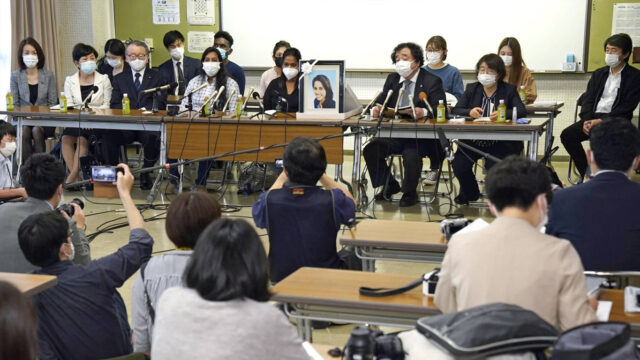The death of a 33 year old Sri Lankan immigrant Ratnayake Liyanage Wishma Sandamali in a detention centre in Japan led to a public backlash towards the rights and living conditions in the country. The woman was detained in the Nagoya Regional Immigration Services Bureau in the Aichi Prefecture in Japan. The woman had approached the authorities with a complaint of domestic violence against her however she was held up in the centre due to overstaying her visa period. This incident led to a debate evaluating the balance between human rights and immigration law.
Japan is known to have one of the strictest rules with regard to asylum seekers. According to a BBC report, Japan accounts for less than 1% acceptance of asylum seekers each year. This number is much lower than the other developed countries like the United States or the European nations. Japan was in news for adopting an immigration bill which aimed at facilitating deporting asylum seekers without stay permits. This was a revision of the 1951 Immigration Control and Refugee Recognition Act and attempted to limit the number of times an applicant could seek refugee status to avoid lengthy periods of detentions. However another opinion stated that while this would speed up the process , it will also result in deportation of many people to places where they faced threats to their lives. There were many other aspects that gave more rights to the immigration authorities for deportation as well as punishments in case of a violation.
The amendment was due for voting however, the death of an immigrant in the detention centre has led to a withdrawal of the bill for the timing. She had complained of medical issues however, the living conditions in the detention centres have attracted attention after this instance. There have been some allegations regarding the ill treatment at facilities. There has been a public outcry demanding better laws for immigrants and asylum seekers and criticising the amendment. The United Nations High Commissioner for Refugees too expressed concern about certain aspects of the immigration bill.
Japan ranks low in terms of states that offer asylum due to its strict rules in that respect. According to Reuters, the country had a 0.4% rate of successful application as against 25.9% in Germany and 29.6% in the United States. The amendment in the bill would have had a two fold affect on the immigrants. On one hand, it would have accelerated the time of decision making as well as limited the numbers of applications. On the other, it might have led to serious life threat scenarios for people with political instability in the countries they came from. It has been criticised by the parliamentary opposition in Japan who has demanded facts related to the Sri Lankan woman’s death. Currently, countries all over the world are struggling with a pandemic that is posing a threat to basic life necessities for many. This issue raises many more questions in that context and needs to be dealt with patience and diligence.









